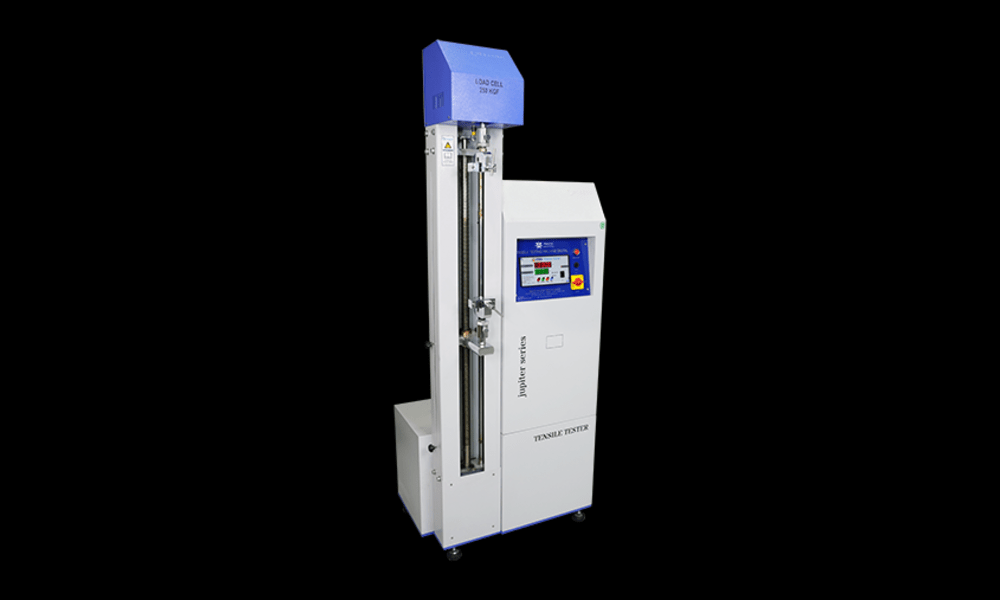Why Tensile Test Machines Are Crucial for Modern Quality Control

In the world of material testing, ensuring durability and reliability is crucial. A tensile strength tester is one of the most vital instruments in quality control processes across various industries. This equipment determines the maximum amount of force a material can withstand before breaking. Whether you're in manufacturing, construction, or research, understanding tensile strength is key to product performance and safety. In this blog, we will explore tensile strength testers, their principles, uses, manufacturers, and pricing.
What is a Tensile Strength Tester?
A tensile strength tester is a specialized machine designed to evaluate the tensile properties of materials such as metals, plastics, textiles, and composites. By applying controlled tension to a sample, the tester measures its elongation, yield strength, and ultimate tensile strength.
This equipment is critical in determining whether a material can endure the stress it will face in real-world applications. For example, the tensile strength of a steel rod used in construction determines how much weight it can safely support.
How Does a Tensile Test Machine Work?
A tensile test machine operates by holding the material sample in place using two clamps or grips. One grip remains stationary while the other is attached to a moving crosshead. When the test begins, the machine applies tension to the sample, stretching it until it deforms or breaks. Sensors record the force applied and the elongation of the material.
Key measurements obtained during a tensile test include:
- Ultimate Tensile Strength (UTS): The maximum stress the material can withstand.
- Yield Strength: The point at which the material begins to deform permanently.
- Elongation at Break: The extent to which the material stretches before breaking.
Applications of Tensile Strength Testers
Tensile strength testers are used across industries, including:
- Manufacturing: Ensures the quality and durability of materials used in production.
- Automotive: Tests the tensile properties of components to ensure safety and performance.
- Textile: Evaluates the strength of fabrics and fibers.
- Plastics and Polymers: Determines the strength and flexibility of plastic products.
- Construction: Verifies the tensile strength of building materials like steel and concrete.
Leading Tensile Strength Tester Manufacturers
Several manufacturers specialize in producing high-quality tensile strength testers, offering advanced features for accurate testing. Leading brands often provide customizable machines to suit specific industry needs. When choosing a tensile strength tester manufacturer, consider factors such as precision, durability, and after-sales support. Reputable manufacturers include Presto, Instron, and ZwickRoell, each offering a range of models designed for different testing requirements.
Tensile Strength Tester Price
The tensile strength tester price varies depending on the machine's features, capacity, and brand. Entry-level models for basic testing may start at $1,000 to $3,000. Advanced machines with automated controls, high-capacity load cells, and detailed reporting capabilities can range from $5,000 to $50,000 or more.
For laboratory use or specific industries like aerospace and automotive, investing in a higher-end tensile test machine ensures greater precision and reliability.
Conclusion
A tensile strength tester is an indispensable tool for ensuring product quality and material reliability. From manufacturing to construction, this equipment plays a critical role in maintaining safety and performance standards. When selecting a tensile test machine, it is essential to consider the intended application, required features, and budget.
With advancements in technology, modern tensile strength testers provide unmatched accuracy, making them a valuable asset for any industry aiming to deliver durable and reliable products.
- Art
- Causes
- Crafts
- Dance
- Drinks
- Film
- Fitness
- Food
- Игры
- Gardening
- Health
- Главная
- Literature
- Music
- Networking
- Другое
- Party
- Religion
- Shopping
- Sports
- Theater
- Wellness
- IT, Cloud, Software and Technology


